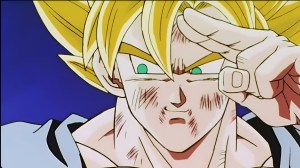Debuting in less than two weeks, Netflix‘s The Chilling Adventures of Sabrina is likely to be a big hit, but it has some shortcomings that will make it unlikely to be as popular as Stranger Things or Riverdale, and some mythology questions that may prove difficult to sustain over multiple seasons.
Videos by ComicBook.com
Following in the footsteps of Riverdale, which had one of the most effective pilots in recent memory, is no easy feat, and in a lot of ways, showrunner Roberto Aguirre-Sacasa and director Lee Toland Krieger did not try.
Heading to Netflix meant that The Chilling Adventures of Sabrina could unfold more deliberately, with its first few episodes less packed, than Riverdale — which is a blessing and a curse in a show that’s full of both.
Having seen the first half of Sabrina‘s first, 10-episode season, it is clear that the show is ambitious. Created by passionate people with a heck of a budget; what it seems to lack is a sense of direction.
Sabrina has plenty of urgency. Rather than a murder mystery, it hinges on Sabrina’s choice to become (or not become) a witch on her 16th birthday, and the forces working on her in both her personal and supernatural lives. The acting is uniformly excellent, which makes it easy to invest in the characters, and Kiernan Shipka’s chemistry with Ross Lynch, who plays Sabrina’s boyfriend Harvey Kinkle, is easy and believable, evoking the best-friends-turned-lovelorn-teens chemistry that made China Anne McClain and Jordan Calloway so easy to watch at the start of Black Lightning.
Shipka is an undeniable highlight, making it immediately clear why she was cast. Sabrina’s cousin Ambrose (played by Chance Perdomo) feels like a likely breakout character, and Perdomo’s performance is mostly hilarious, occasionally heartbreaking, and always very real.
That the show is overtly political and feminist, and that Sabrina seems from the first moment of the episode to leave her life’s plan behind so she can spend more time with Harvey, is one of the things that makes the show dissonant, but engaging. Some may view that choice as a faulty one, and say that by even considering such a course, Sabrina is being antifeminist, but she knows what the “right” thing to do is and has to wrestle with making the choice of following her destiny or following her heart, which is a very human problem (especially for teenagers).
That she is a teenager facing “real” teenage problems in a heightened world is a big part of what makes Shipka’s performance, and Sabrina‘s writing, so relatable. Comparing her, again, to Riverdale, Sabrina consistently makes smarter and more believable choices than Archie Andrews, which means less suspension of disbelief.
The first few episodes set up big questions about the true natures and motivations of a number of key characters, and while they are mostly resolved in the first half of the season, those miniature mystery boxes drive a lot of the early plot. That leaves open the question of how they will continue to intrigue going forward, once those initial relationships are established more firmly.
This all sounds good, right? Sounds like a really entertaining show? And it is, mostly. Sometimes it is a bit too slow for its own good, but the issue is really with tone.
Simply put, The Chilling Adventures of Sabrina does not seem to know what kind of Archie show it wants to be. Desperate to be taken seriously and eager to prove how dark and horror-influenced it is, the series has flaws similar to those seen in DC Universe’s Titans, where sometimes it is so determined to be “adult” that it becomes a parody of itself.
With Sabrina, what is tough about the idea of becoming a parody of itself is that Archie Comics isn’t like DC; it has humor baked into every high concept. With something like Riverdale, they embrace the camp and exploit it to create more melodrama or humor. In Sabrina, the math is not quite right, and you end up feeling like the show takes itself very seriously even while referring to the dark judge in a satanic trial as “your dishonor” with no trace of irony.
The plot itself is solid, although slow, so between the technical excellence of the set design and cinematography, the rock-solid performances, and a good story, most fans will likely be able to overlook or roll with some of the tonal weirdness in order to spend a few hours hanging out with a great young cast bringing some larger-than-life characters into being.

In terms of craft (filmmaking-, not witch-), it is hard to argue that the show is beautifully shot. A stylistic choice that views almost every scene, especially those with magic involved, through varying degrees of distortion at the edges of the frame makes for a dizzying and disconcerting viewing experience at times, giving the show an unsettling feeling that plays into its creepy, narrative horror. There are rarely jump scares, so the fact that the shots can be a little unclear does not impact the fun.
In terms of visual effects, the show runs the gamut from terrifying to campy, and if there is a weakness there, it is that some of the effects that should be horrifying are campy, and some that are less important to get “right” were clearly lovingly crafted. As the season progresses, most of the effects settle in, but in the first few episodes there are some sore thumbs sticking out.
Sabrina‘s talented young supporting cast are all a bit underused too. While characters like Harvey, Roz (Jaz Sinclair), and Susie (Lachlan Watson) are fun to watch and interact well with Sabrina, the first half of the season focuses so heavily on the supernatural elements that those characters get little to do, leaving most of the meaty stuff to grown-ups like Miranda Otto, Bronson Pinchot, Michelle Gomez, and Lucy Davis. They all acquit themselves admirably, and the story is never boring, but it is easy to find yourself wishing that this high-schooler spent a little more time doing things with people her own age.
When she does hang out at school, we go back to ’80s and early ’90s tropes with a modern twist. Bullies who physically abuse people for no reason other than being bullies and school authorities who want to restrict the students in archaic ways combine to give Sabrina and her friends a clear sense of purpose that makes the high school stuff feel politically astute and incredibly significant to helping to define Sabrina’s character. That it doesn’t get the screen time it deserves right away likely means that the show will be even better once the witchy stuff hits its stride and we can slow down to develop characters and relationships a bit.
The first season of The Chilling Adventures of Sabrina will debut on Netflix on October 26th.








